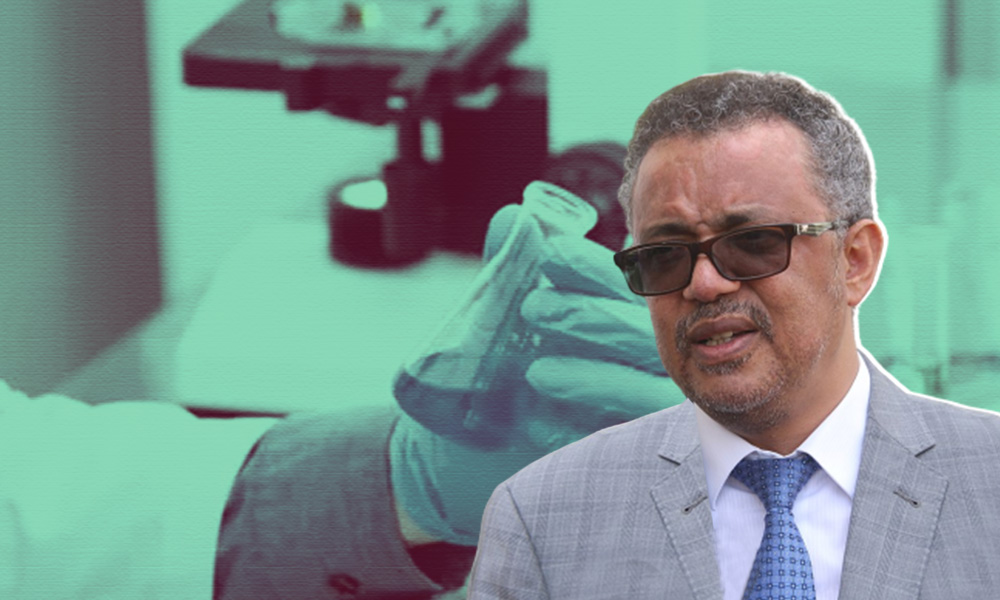
Image Credit: Wikimedia
'Don't Wait For Vaccine, Save Lives Now': WHO
Writer: Devyani Madaik
A media enthusiast, Devyani believes in learning on the job and there is nothing off limits when it comes to work. Writing is her passion and she is always ready for a debate as well.
India, 21 July 2020 11:57 AM GMT | Updated 22 July 2020 3:08 AM GMT
Editor : Shubhendu Deshmukh |
Shubhendu, the quint essential news junky, the man who loves science and politics in equal measure and offers the complete contrast to it by being a fan of urdu poetry as well.
Creatives : Abhishek M
" An engineer by profession, Abhishek is the creative producer of the team, graphic designing is his passion and travelling his get away. In more ways than one, he makes the content visually appealing."
Director Tedros Ghebreyesus urged the nations to take all necessary health precautions, with special emphasis on contact tracing, till the companies/institutions around the world continue to accelerate vaccine research.
Addressing the media on the COVID-19 situation worldwide, Director-General of the World Health Organisation (WHO) Tedros Adhanom Ghebreyesus said that countries need to focus on saving lives with possible alternatives available, rather than waiting for the vaccine.
Tedros urged the nations to take all necessary health precautions, with special emphasis on contact tracing, till the companies/institutions around the world continue to accelerate vaccine research.
He laid importance on contact tracing, considering it as a temporary fix and a bridge to treatment. The process has long been the bedrock of outbreak response, from smallpox to polio, to Ebola and now COVID-19.
"One of the lessons from the recent Ebola outbreak in the eastern Democratic Republic of the Congo, which was declared over last month, is that contact tracing can be done even in the most difficult circumstances, with security problems," Tedros while stressing over the significance of the process.
As the countries are opening up steadily and resuming economic activities, the process becomes all the more important and should be a part of the comprehensive package including rapid testing, currently available medications that COVID-19 patients are being treated with.
"By identifying and isolating cases, countries can track the spread of the virus and can help reduce further transmission," he added.
Speaking of countries with Stage III of the coronavirus and the ones who have recently recognised, Tedros said that door-to-door surveys remain the ground way to find cases and contacts, and help break the chains of transmission.
The process can prevent individual cases from becoming clusters, and clusters turning into community transmission, and break down the epidemic into manageable parts.
Pandemic has affected the daily lives of people around the world, but the outbreak has majorly distressed indigenous and other vulnerable communities, that account for more than 500 million in over 90 countries.
This is because they deal with high burdens of poverty, unemployment, malnutrition and both communicable and non-communicable diseases, which makes them all the more prone to the infection.
The root causes remain lack of political representation, economic marginalization and lack of access to health, education and social services, Tedros mentioned.
Also Read: Centre Warns Against Use Of N95 Masks With Valves, Quotes It 'Detrimental' In Preventing COVID-19
 All section
All section














